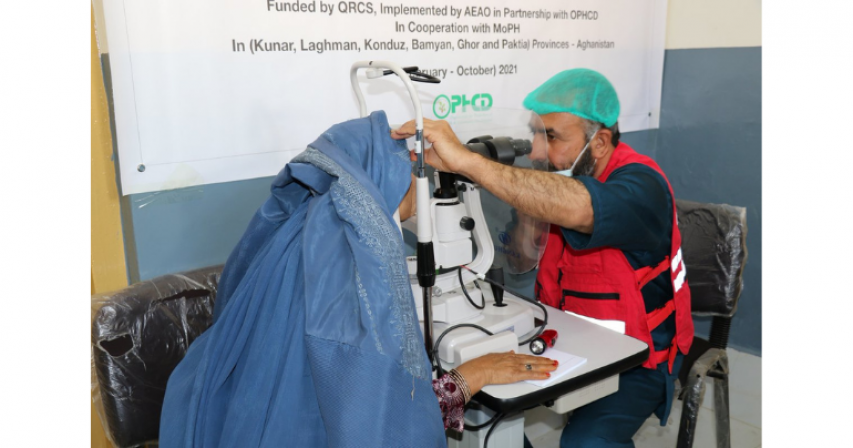Qatar Red Crescent Society (QRCS) has inaugurated a new initiative to perform 1,300 cataract surgeries and 2,300 medical examinations for poor patients with eye diseases in six Afghan provinces (Kunar, Laghman, Bamyan, Ghor, Kunduz, and Paktia).
The one-year project involves performing cataract examinations and procedures, providing medications and eyeglasses, implementing community awareness programs, and distributing informative fliers about prevention of eye diseases.
According to estimates, there are nearly 400,000 blind persons in Afghanistan and 1.5 million with low vision. Reports by the Ministry of Public Health of Afghanistan show that cataract is the main cause of blindness in 60% of cases. There remain 200,000 cases on waiting lists for cataract surgeries.
In light of the size of the problem, and inspired by its humanitarian commitment, QRCS launched this project to reduce vision loss rates and improve eye health among the populations of remote provinces.
The inaugural ceremony in Kunar was attended by the Manager of Provincial Health Bureau and representatives of local authorities, QRCS, the Afghan Education and Aid Organization, and the Organization for Promotion of Health and Community Development (OPHCD).
During the ceremony, Wasifullah Wasifi, Deputy Governor of Kunar, welcomed the team and thanked QRCS for its support to such beneficial projects for the Afghan people, particularly the poor. He promised to remove all issues and help the team to have the work accomplished.
Dr. Azizurrahman Safi, General Director of the Health Bureau of Kunar, said the project would enable hundreds of patients, mostly women and poor people, to restore their vision and live normally. "MOPH appreciates QRCSs support for our people in many provinces and areas of assistance," he added. "I hope there will be further support for the health sector at many levels".
Zikrullah Hashimi, Deputy Manager of the Afghan Education and Aid Organization, highly valued the countrywide partnership with QRCS in different areas, such as water, food, and nonfood assistance.
He described working with QRCS as a source of pride, thanks to its credibility, systematic work, and good selection of beneficiaries. (QNA)

Comments